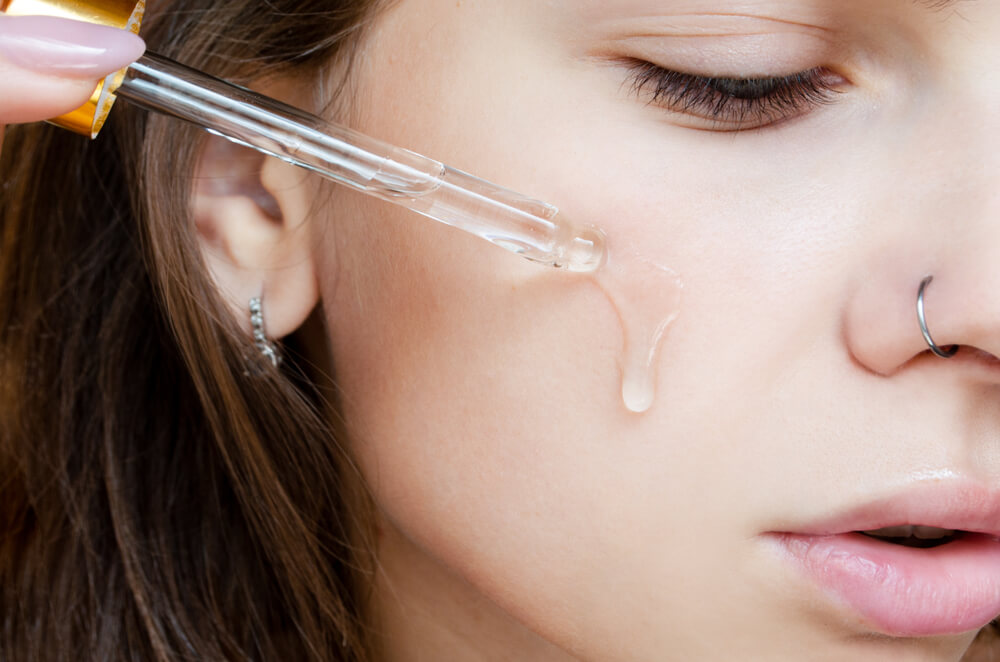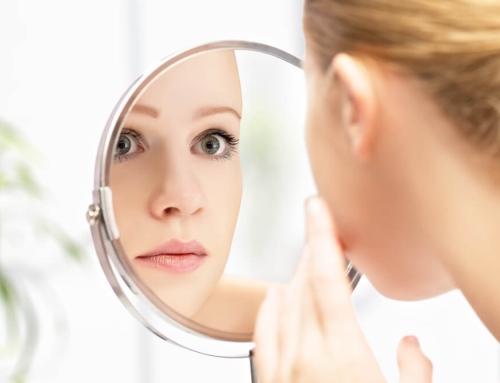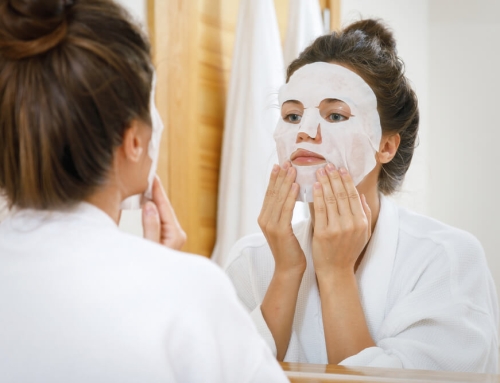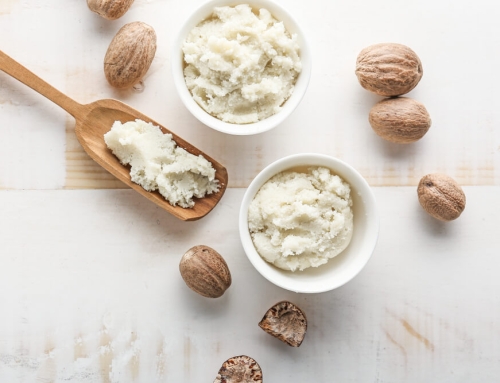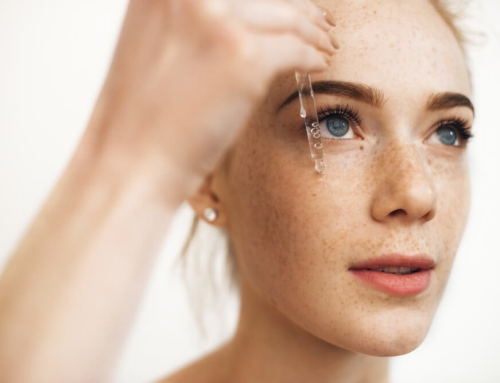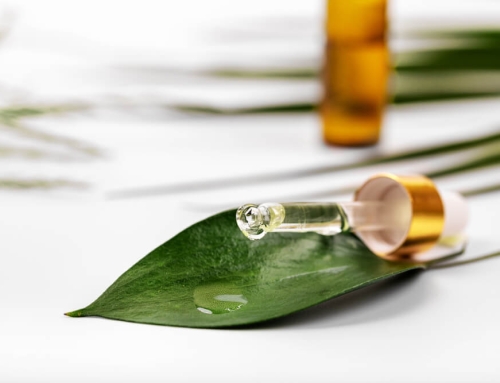If you already use a variety of different skin care products, then chances are that some already contain antioxidants. However, these potent ingredients are worth seeking out specially – they have the ability to trigger deep and long-lasting changes within the skin, while targeting specific skin issues you may be dealing with.
How Do Antioxidants Actually Work?
Your skin is packed with different molecules, and these are all made up of electrons. However, everything from air pollution to certain chemicals cause free radicals to develop in the skin – molecules that are missing an electron, making them unstable and dangerous.
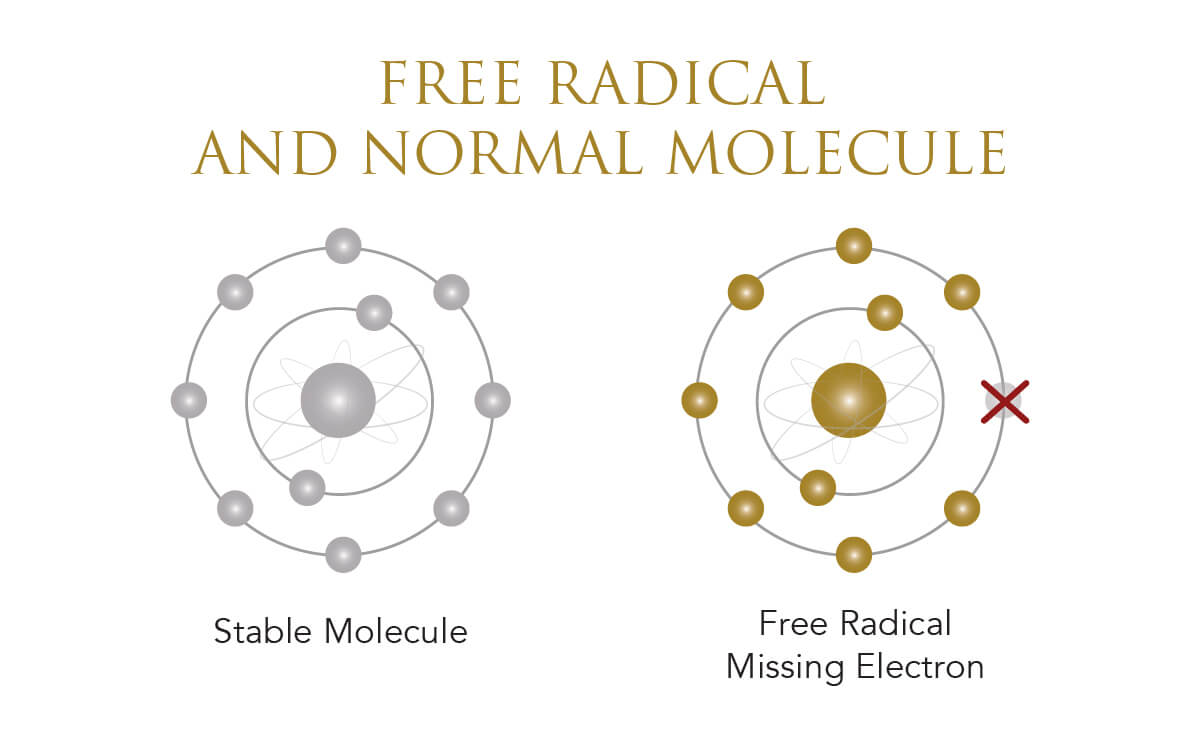
In order to replace their missing electron, free radicals attach themselves to nearby cells, trying to steal theirs. This then turns those cells into free radicals too, while also destroying the collagen and elastin in your skin – the two proteins that give your skin its firmness, smoothness and elasticity.
The only way to neutralize free radicals is to give them their missing electron, turning them back into normal, healthy molecules. This is exactly what antioxidants do – they contain several spare electrons, which they give to free radicals they encounter in the skin.
Since free radicals are almost always developing in the skin, consistent use of antioxidants is crucial in preventing them from causing serious damage. All antioxidants will help to scavenge free radicals, but they also have their own individual benefits too…
Which are the best antioxidants for your skin?
Here are seven that you definitely should be using…
Vitamin C
Yes, it’s a vitamin, but vitamin C is also one of the most powerful antioxidants out there. You may see it listed on an ingredient list as:
- Ascorbic acid
- Tetrahexyldecyl ascorbate
- Ascorbyl palmitate
Some products, such as the 24K Vitamin C Booster Facial Serum, contain more than one form of the antioxidant, giving you a double dose of its benefits.
What Does Vitamin C Do?
One of the most-loved effects that vitamin C has is brightening the skin.
How does it do that?
By lightening any hyperpigmentation and dark spots. Vitamin C is able to target cells that contain excess melanin, which is the pigment that gives your skin its color. It also evens out the skin tone and boosts the natural radiance of the skin. All of this gives the skin a lighter and brighter appearance.
The vitamin also plays a key role when it comes to collagen production, and therefore the overall firmness of your skin.
Using Vitamin C on Your Skin
Many don’t realize that vitamin C is quite an unstable molecule, meaning that any products need to be kept away from the light. If not, the ingredient will lose its efficacy, and could even end up contributing to the development of more free radicals.
While vitamin C is a fantastic ingredient in a skin cream, opt for a serum to gain maximum benefits. Since a serum is so thin and lightweight in consistency, it quickly delves into your deeper skin cells, and these are the ones that really need the antioxidant protection.
Green Tea Extract
Not only is green tea considered to be a superfood for the body, but it’s also an incredible antioxidant for the skin.
There is so much research out there that points to how green tea can benefit the skin, with most of this coming down to the extract’s EGCG content.
What is EGCG and What Does it Do?
EGCG stands for epigallocatechin-3-gallate, and several studies have found this polyphenolic compound to have a number of benefits when it comes to skin care, in addition to its antioxidant properties. These include:
- Anti-inflammatory effects
- Treating acne due to its anti-androgenic effects – this means that it reduces excess sebum production in the skin
- Helps to increase skin moisture levels
- Prevents against skin cancer
Using Green Tea on Your Skin
There are some skin care products out there that contain EGCG that has been isolated from green tea, rather than green tea extract as a whole.
Are these better?
Not necessarily…
Yes, the EGCG in the extract may be the most powerful compound when it comes to antioxidant properties, but green tea extract as a whole contains several other components that also benefit the skin, such as:
- Caffeine
- Amino acids
- Saponins
- Several vitamins and minerals
Resveratrol
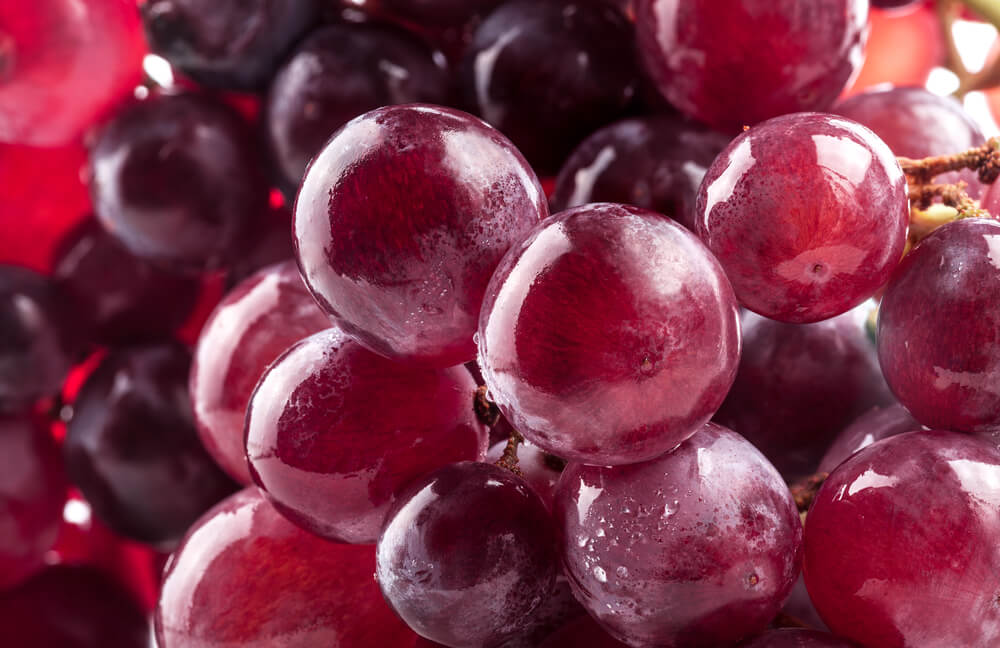
Resveratrol is pretty new on the skin care market, but it’s been around forever. This polyphenolic antioxidant can be found in red grapes (and therefore red wine too), certain fruits, such as cranberries and blueberries, and nuts.
What Does Resveratrol Do?
In addition to neutralizing the harmful free radicals in your skin, resveratrol will also help to support your skin’s fibroblasts. These are the cells deep inside your skin that are responsible for the production of collagen – the protein that gives your skin its youthful smoothness.
Resveratrol also contains calming properties that soothe any inflammation and redness, making it suitable for targeting a variety of different skin issues. As an added bonus, it helps with hydration too, making it a game-changer for those with dry skin.
Using Resveratrol on Your Skin
Although most forms of resveratrol that are used in skin care products are pretty stable, it’s still best to keep any products in a cool and dark place, away from direct sunlight.
You will find resveratrol in a number of different product types, from serums to creams to masks. These are all worthwhile – although a serum will take the ingredient deeper into your skin, creams and masks are still great for utilizing all of the other benefits that resveratrol provides.
Pomegranate Extract
Green tea has already been mentioned, but did you know that pomegranate extract has three times more antioxidants than green tea?
The ingredient also contains more antioxidants than most other fruit extracts, with this potent combination proving to be key when it comes to preventing and reversing the visible signs of aging.
What Does Pomegranate Extract Do?
While the antioxidants in pomegranate extract are extremely effective at fighting free radicals, each one also brings with it its own unique set of benefits.
As mentioned above, vitamin C can work wonders of the skin, and pomegranate extract contains a high amount of this. The ellagic acid in the extract, another potent antioxidant, has been shown to reverse sun damage. Its vitamin E content helps to protect the skin and maintain moisture levels, while vitamin K has a brightening effect.
With pomegranate extract having a very small molecular structure, it is able to penetrate deeply into the skin, which is where antioxidants need to be in order to have maximum effect.
Using Pomegranate Extract on Your Skin
Although it contains several antioxidants of its own, pomegranate extract works best when combined with other fruit extracts. All of those different antioxidants can then join forces to give your skin everything it needs.
The OROGOLD 24K Nano Hydra Silk Mask provides this – in addition to its pomegranate extract, it also contains:
- Goji fruit extract
- Maqui fruit extract
- Bilberry fruit extract
- Acai berry fruit extract
- Chokeberry fruit extract
- Mangosteen fruit extract
- Noni fruit extract
Mix this with vitamins A and E, along with with peptides and humectants, and you’ve got yourself an incredibly powerful anti-aging formula.
Coenzyme Q10
Coenzyme Q10 is a pretty important antioxidant that not many seem to know about…
Every cell in the human body contains it, and so do many foods. The human body naturally produces CoQ10 itself, but levels decline with age. Although research has been scarce on this fat-soluble antioxidant until now, more and more studies are emerging to show that CoQ10 is an ingredient that you definitely want to be using on your skin.
What Does Coenzyme Q10 Do?
CoQ10 is an extremely powerful antioxidant when applied topically. Research shows that not only is CoQ10 able to reduce the depth of wrinkles on the skin, but it can also treat oxidative damage that has been caused by UV rays – something that significantly contributes to skin aging.
Studies have also found a correlation between CoQ10 and skin cancer – those who have higher levels of the antioxidant are far less likely to develop skin cancer.
How does CoQ10 actually work?
It provides the cells in your body with the energy that they need in order to function properly. This means that, in addition to its antioxidant effects, CoQ10 also:
- Boosts skin cell regeneration
- Increases collagen production
- Maintains elasticity
- Prevents excess melanin production to promote an even skin tone
Using Coenzyme Q10 on Your Skin
The best way to use CoQ10 is through a serum or a moisturizer. Regular and consistent use is key when it comes to building up your skin’s levels of this antioxidant.
Soy
You probably weren’t expecting to see soy on this list. After all, soy isn’t an ingredient that usually makes industry headlines. However, a number of recent studies have been carried out on soy, each one discovering the many benefits that this ingredient can have.
What Does Soy Do?
Soy contains isaflavones, powerful antioxidant compounds that protect the skin from free radical damage. It is also rich in lecithin, a nutrient full of fatty acids that hydrate and repair the surface layer of the skin.
The anti-inflammatory properties of soy enable it to treat redness caused by sun damage and skin conditions, with the ingredient known for its calming and soothing properties.
Using Soy
While many of the antioxidants out there are known for causing slight irritation to the skin when they are first used, you won’t have that problem with soy.
The ingredient is extremely gentle and is suitable for all skin types, from oily to dry, with side effects being very rare. Its gentle nature also means that this ingredient can be used in the daytime, causing no adverse effects when it comes into contact with sunlight.
There are a few different forms of soy used in skin care, but each one will bring you its inherent benefits. Keep an eye out for hydrolyzed soy fiber, which you will find in the OROGOLD 24K Termica HD Solution. This formula contains several other plant extracts to give your skin an illuminated, matte finish.
Niacinamide
A biologically active form of vitamin B3, niacinamide is another antioxidant that plays several important roles. It is efficient at targeting free radicals, but can also help the skin many other ways.
What Does Niacinamide Do?
Niacinamide is quite the multi-tasking ingredient. It:
- Has anti-inflammatory effects, soothing redness and irritation. This enables it to help treat various skin conditions, including rosacea and eczema
- Repairs the stratum corneum, the protective barrier that sits on the outermost layer of the skin
- Reduces hyperpigmentation and dark spots, giving you a more even and balanced skin tone
Using Niacinamide on Your Skin
If you have never used niacinamide before, keep in mind that some experience irritation when they first begin applying it topically. This usually disappears as you continue to use the ingredient, but it could also be due to you using a product with the wrong concentration of the ingredient for your skin.
Always start with a low-strength product – your skin doesn’t need huge amounts of the ingredient in order for the changes to take place.
Are you using niacinamide and vitamin C together?
While both niacinamide and vitamin C work well when combined with other antioxidants, the two should never be used together.
Why?
Because they negate each other’s effects, making them pretty much useless. This doesn’t mean that you have to pick one or the other – simply choose one for your day routine and one for your night!
Antioxidants are vital when it comes to maintaining your skin’s health and preventing free radicals from causing irreparable damage. Whether you use yours in a toner, serum, cream, mask, or anything else, try incorporating antioxidants into multiple stages of your skin care routine in order to really see the improvements in your skin.

